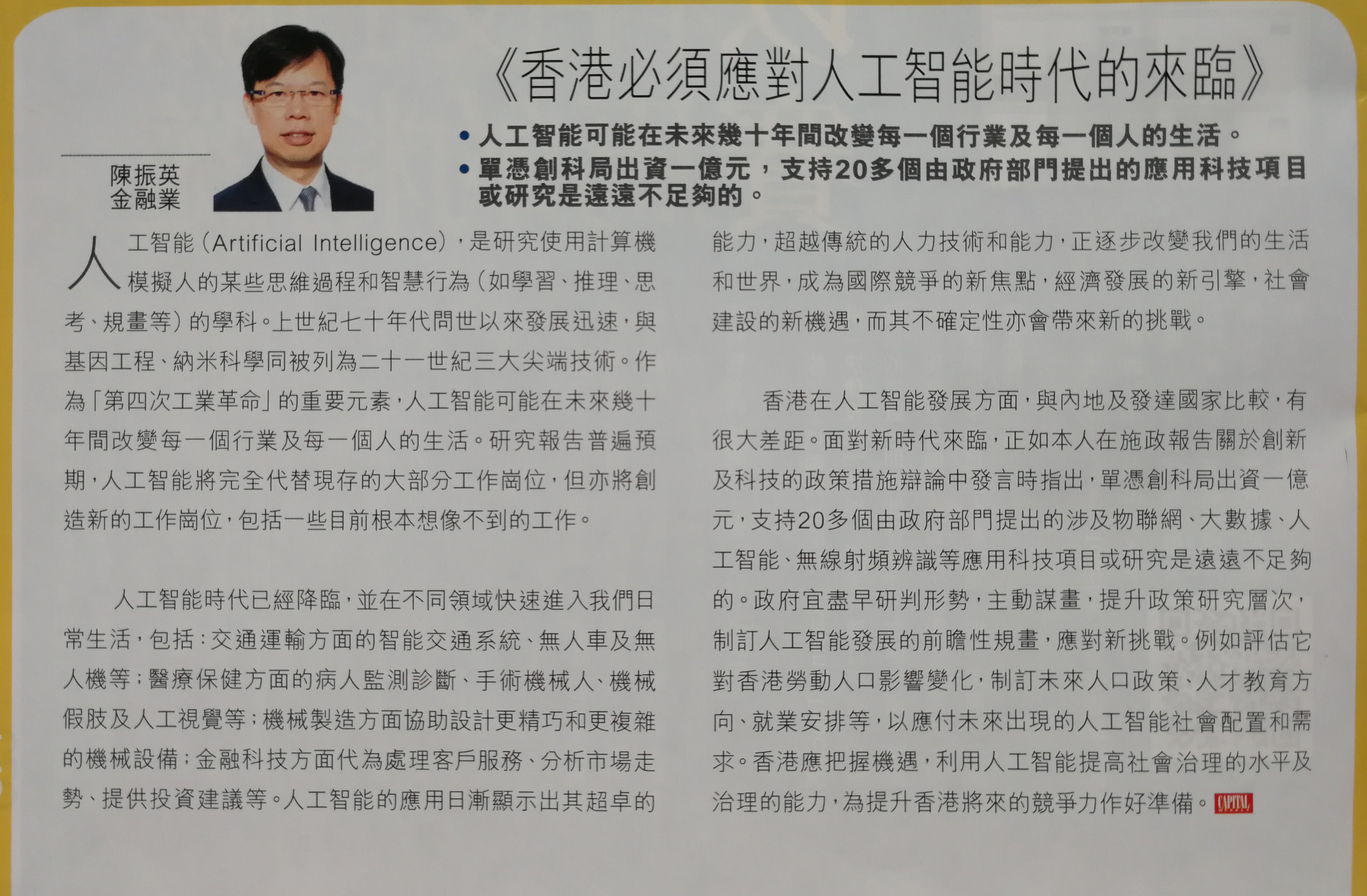
Translated version of Capital Weekly Legislative Councillor’s Column
Hong Kong must deal with the advent of an Artificial Intelligence era
Artificial Intelligence (“AI”) is a discipline that studies the use of computers to simulate certain human thinking processes and intelligent behaviours (such as learning, reasoning, thinking and planning etc.). AI has developed rapidly since its introduction in the 1970s and has joined the list of the top three cutting-edge technologies in the 21st century, along with Genetic Engineering and Nanoscience. As an important element of the “4th Industrial Revolution”, AI may transform every industry and every aspect of an individual’s life in the coming decades. Research studies have generally estimated that AI will completely replace most of the existing jobs, but it will also create new job opportunities, including some currently unimaginable ones.
The era of AI has arrived and is rapidly making its way into different realms of our daily lives. These include: smart transportation systems, driverless cars and drones in the transportation sector; patient monitoring and diagnosis, surgical robots, mechanical prostheses and artificial vision, etc. in the health care sector; assisting the design of more sophisticated and complex machinery in mechanical manufacturing; and in the field of financial technology, the handling of customer service, analysis of market trends and provision of investment advice, etc. The applications based on AI systems have gradually shown their outstanding capabilities, which surpassed traditional human technology and abilities. AI is progressively changing our lives and the world. It has become a new focus of international competition, a new engine for economic development and a new opportunity for social construction. Its uncertainty will also bring along new challenges.
The development of AI in Hong Kong is a far cry from the mainland and developed countries. In face of the advent of a new era, I pointed out in my speech at the Policy Address debate pertaining to innovation and technology policies and measures that by solely relying on the HK$100 million funded by the Innovation and Technology Bureau to support more than 20 applied science projects or research proposed by government departments — involving the Internet-of-Things, big data, AI and radio-frequency identification, etc. — are far from sufficient. The government should conduct an immediate study of the current situation, initiate planning, improve the level of policy research, formulate forward-looking plans for the development of AI so as to meet new challenges. For instance, through assessing the impact of AI on Hong Kong’s workforce, the Administration could formulate population policies, directions for talent education and employment arrangements, thereby managing the social configuration and demands of AI in the imminent future. Hong Kong should seize this historical opportunity to use AI to enhance the level of social governance and capabilities, and prepare for the future competitiveness of Hong Kong.
